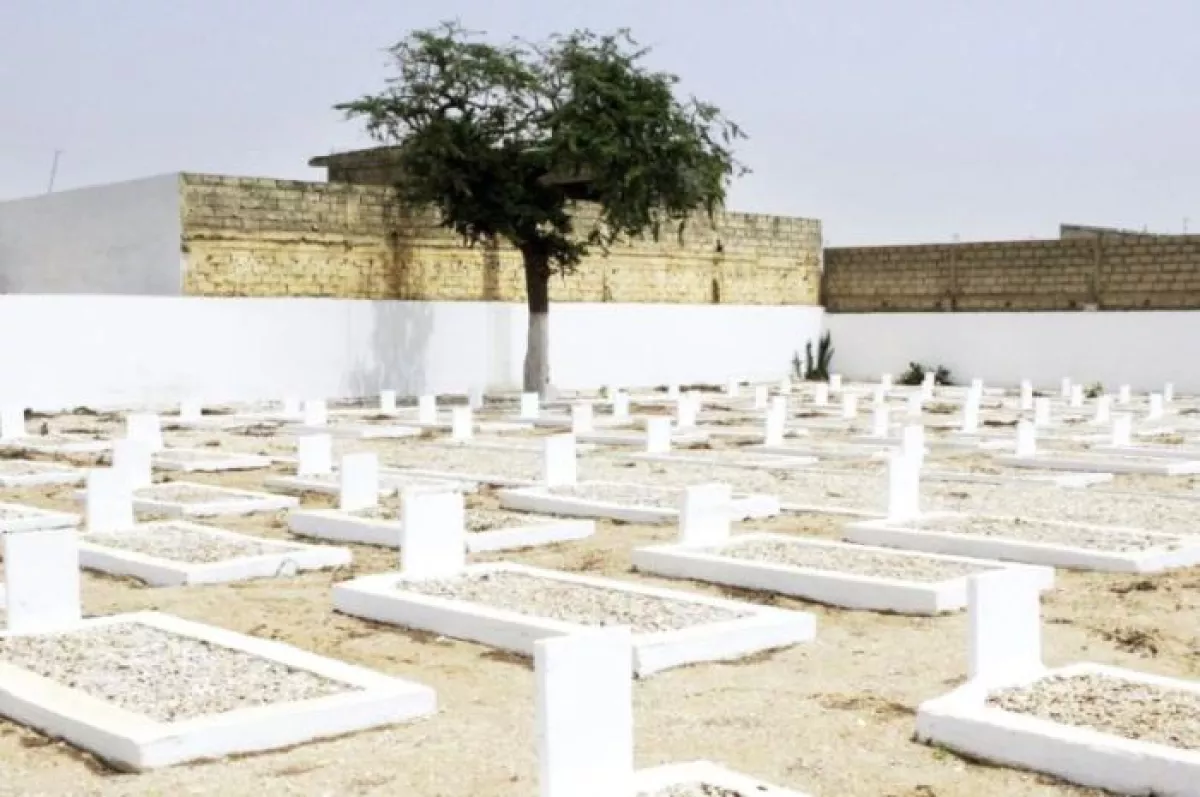Senegal demands truth and accountability for 1944 massacre of African soldiers Eighty years on
Senegal on December 1 will commemorate the massacre of dozens of African soldiers who had fought for then colonial ruler France by French troops in a Dakar suburb on December 1, 1944.
According to historian Mamadou Diouf, France has deliberately tried to erase from memory the mass killings of soldiers known as "tirailleurs" (riflemen) from its various former African colonies, Caliber.Az reports per Barron's.
The 80th anniversary commemoration is not only an opportunity to remember the tragic events but also a chance for the newly-elected government to assert its sovereignty, said Diouf, a professor at Columbia University in New York.
"The commemoration is a political gesture. It signals a dual commitment to sovereignty and Pan-Africanism," Diouf explained.
In November 1944, around 1,600 African soldiers, who had fought for France and been captured by Germany, were repatriated to Dakar, according to French historian Armelle Mabon.
Upon arrival at the military camp in Thiaroye, just outside Dakar, they staged protests over delayed wages, with some refusing to return home without their due payments.
French forces opened fire on the protesters, killing at least 35, though historians suggest the true number may have been much higher.
"France made every effort to suppress the narrative by blocking any references to the massacre, concealing the facts about the repatriated soldiers, the nature of the movement, the extent and methods of repression, the death toll, and the identification of the graves," Diouf said.

An official ceremony, led by Senegal’s president, will now take place in Thiaroye annually, a departure from previous leaders such as Leopold Sedar Senghor, Abdou Diouf, Abdoulaye Wade, and Macky Sall, whom Diouf claims remained silent on this dark chapter in history.
A dedicated task force of academics, led by Diouf, will also deliver a "white book" to the authorities by April 2025. This will include social sciences and humanities research, along with literary and artistic works.
However, the researcher acknowledges significant obstacles remain.
"The main challenge we face is the resistance of the French authorities, who until now have refused to declassify the archives related to the massacre and grant access to them."
"It appears that for 80 years, there has been a deliberate attempt to erase the massacre from the public consciousness."
Diouf is leading a delegation of historians, archivists, and documentalists appointed by Senegal in August, aiming to "further uncover the truth", as Prime Minister Ousmane Sonko put it.
The group will visit France in the coming weeks to discuss gaining access to and digitising the records held by the French government.
Former French president François Hollande pledged in 2014 to return to Senegal a copy of all related documents, but according to Diouf, the promise was "only partially fulfilled."
"He handed over some documents but not all. This is why it remains difficult to establish the full facts."
"Some archives are still inaccessible or have been declared destroyed or non-existent, which historians are disputing," Diouf added.
At the time, Hollande described the events as "simply appalling, unbearable", referring to the "bloody repression" of "men who wore the French uniform and were then turned upon by the French."
But Diouf argues that efforts thus far are still insufficient. For justice to be realised, France must provide "access to all archives, recognition of the massacre, a revision trial, reparations, identification of mass graves, and the contents of burial sites."
The historian insists the goal is not to settle scores but to address "a hidden event, obstructed memory, and falsified history."
"This is not a condemnation of France. We should be able to draw moral lessons from this story, including calls for reparations. That is entirely reasonable."
By Aghakazim Guliyev








